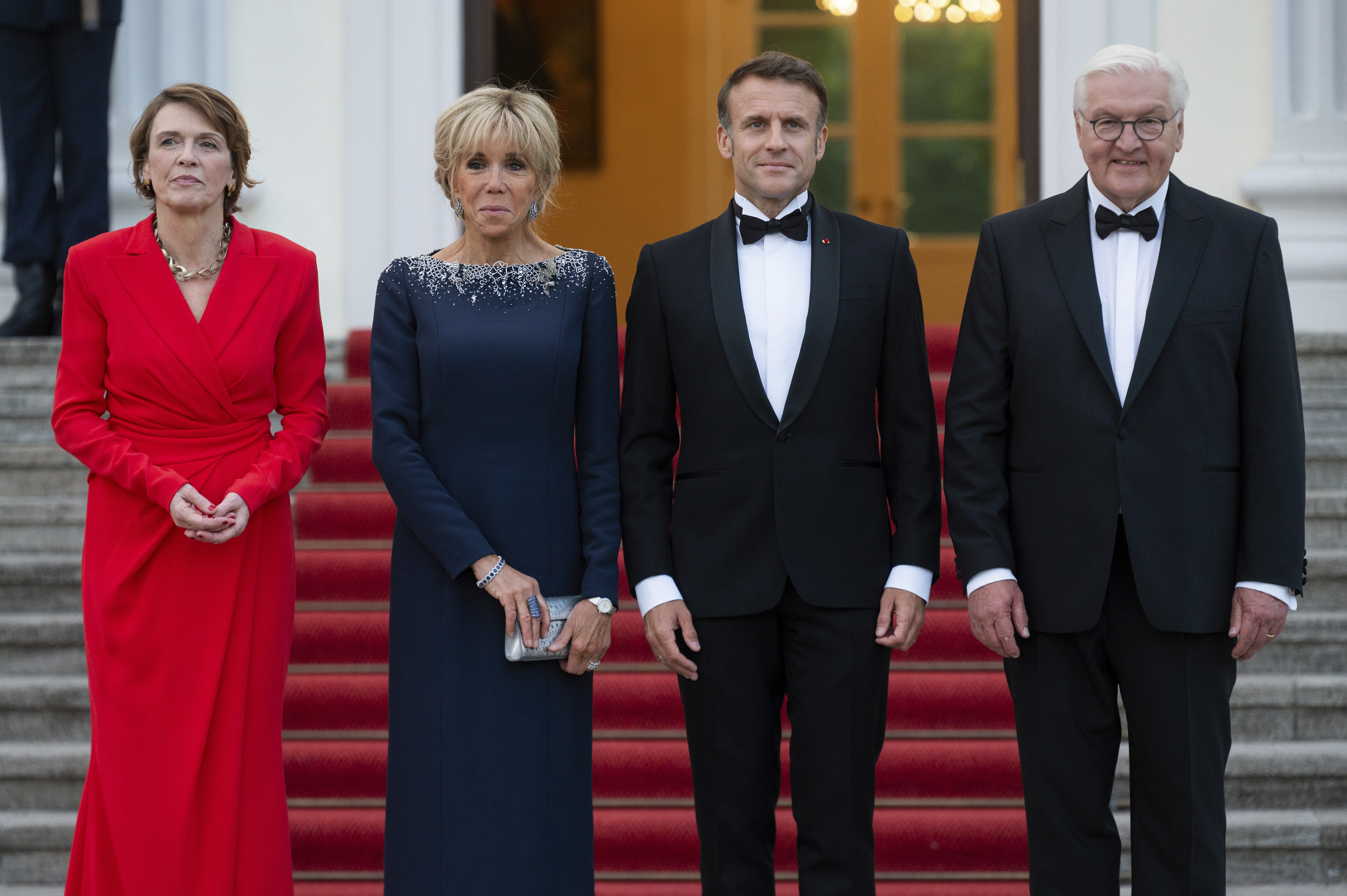
PARIS/BERLIN - French President Emmanuel Macron landed in Germany on Sunday for a three-day state visit followed by a bilateral cabinet meeting as the European Union's two biggest powers seek to show unity ahead of next month's EU parliamentary elections.
Macron's trip to the capital Berlin, Dresden in the east and Muenster in the west is the first French presidential state visit to Germany in 24 years.
"This state visit comes at a key moment for Europe," Macron said. "We have to face an imperialist desire in Europe ... this supposes boosting the Franco-German relationship," he told journalists after he was received by his German counterpart Frank-Walter Steinmeier at the presidential palace, Schloss Bellevu.
"There are tensions in the German-French relationship but in part precisely because they have dealt with some difficult topics," said Yann Wernert at the Jacques Delors Institute in Berlin, noting the two countries had also converged on the need to expand the EU eastwards.
ALSO READ: In riot-scarred New Caledonia, France's Macron delays voting reform
After meeting Steinmeier, Macron, accompanied on his trip by his wife Brigitte, will walk through the landmark Brandenburg Gate with the city's mayor, Kai Wegner
The visit is "an attempt at the highest political level to demonstrate that the relationship is working," said Mujtaba Rahman, managing director for Europe at the Eurasia Group think tank. "But there are still fundamental gaps on major questions that are looming over the EU."
One key such gap is on European defense, in particular if Trump wins the Nov 5 US presidential election. Defense experts view him as a much less predictably reliable ally for Europe than his Democratic rival, President Joe Biden.
France, which has nuclear weapons, has pushed for a more self-reliant Europe on defense matters and has been aggrieved by Germany’s decision to buy mostly American gear for its European Sky Shield Initiative air defense umbrella.
Germany says there is no credible alternative to the US military umbrella and that Europe does not have time to wait for a homegrown defense industry to be prepared for threats.
Pomp and business
After meeting Steinmeier, Macron, accompanied on his trip by his wife Brigitte, will walk through the landmark Brandenburg Gate with the city's mayor, Kai Wegner.
ALSO READ: French, German ministers at G7 meeting warn against trade wars
On Monday, he will head to Dresden, where he will make a speech in front of the Frauenkirche which was destroyed by Western allies during the Second World War, before heading on Tuesday to Muenster.
But perhaps the most significant part of his trip will be the cabinet meeting on Tuesday in Meseberg, just outside Berlin, where the two governments will then get down to business seeking to find common ground on the two main issues they have struggled to see eye-to-eye on, namely defense and competitiveness.
The two countries will also try to find common ground on the EU agenda for the next five years, in view of the expected strong showing for the far-right in the parliamentary elections on June 6-9, making EU decision-making more difficult.
Rahman said the EU would have a clear window to push forward with more ambitious plans - between the parliamentary elections and establishment of the new leadership, and next summer before the German elections. This would be especially important if Trump won the election, he said.


